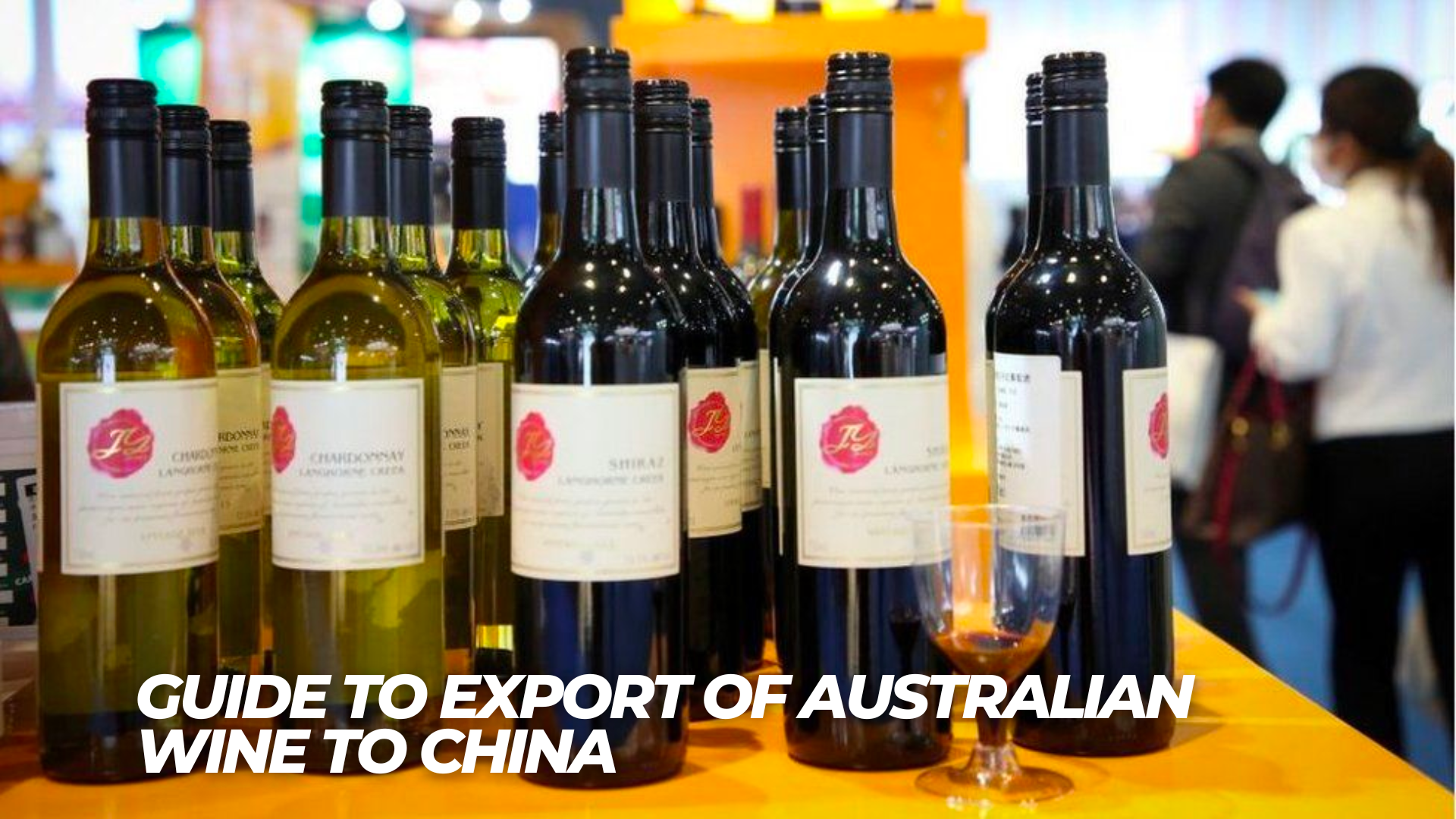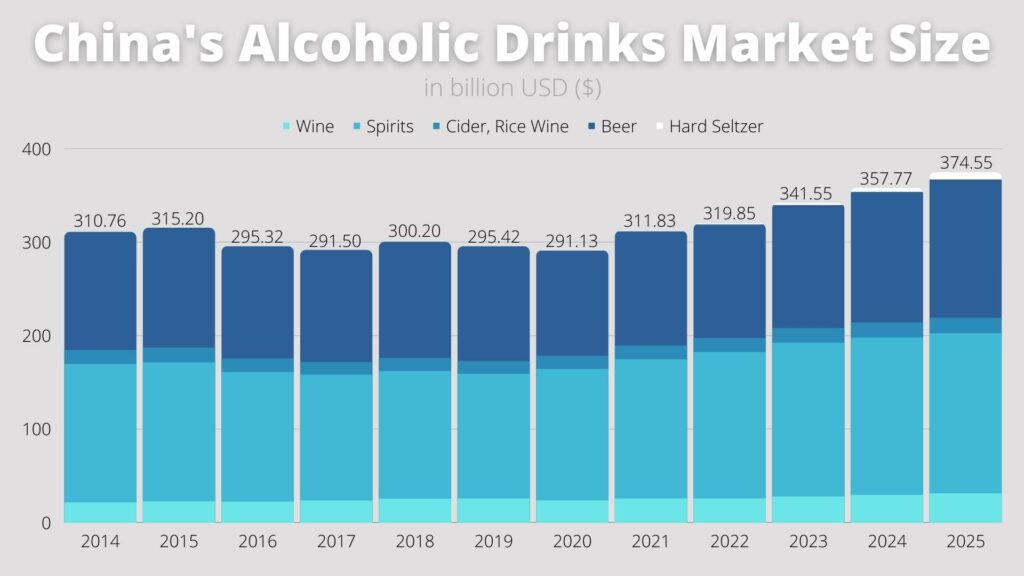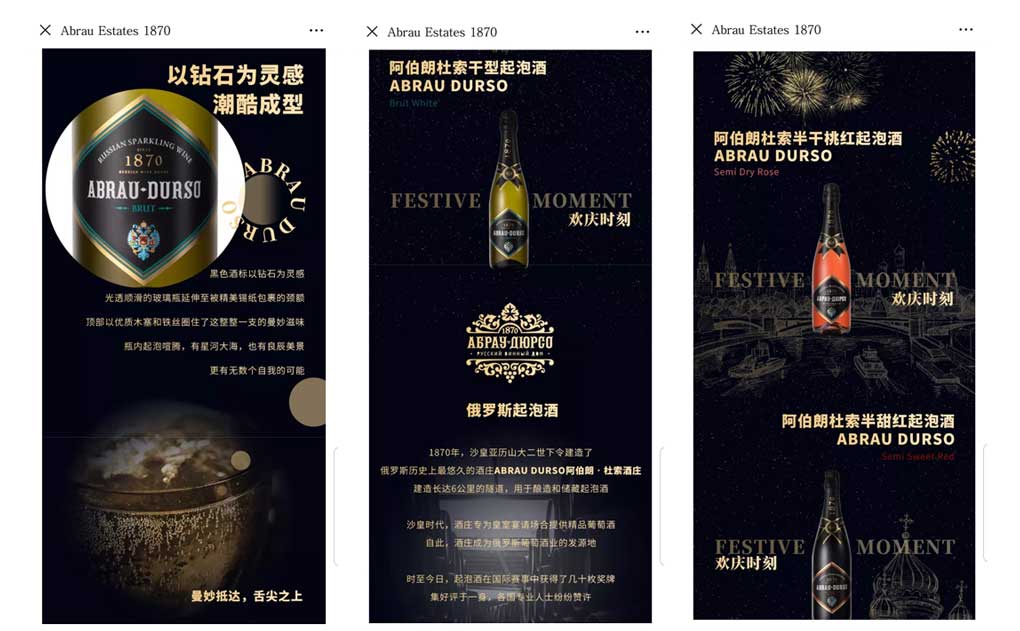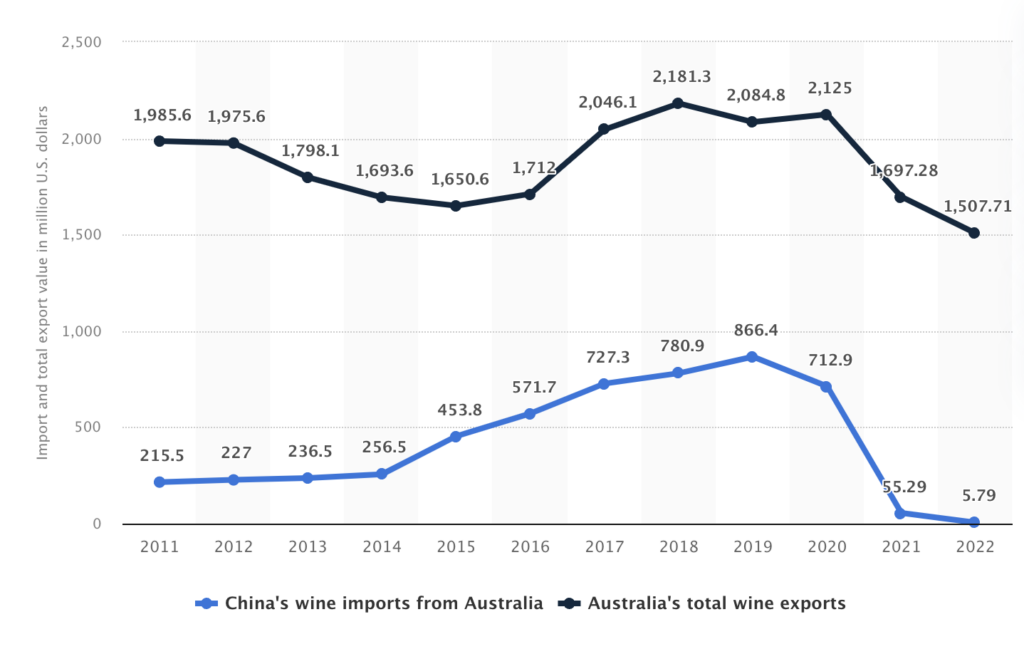Guide to Export Wine to China: Australian Wines

Australian wine has been gaining popularity in China in recent years. With its unique blend of fruity and complex flavors, Australian wine has captured the attention of wine enthusiasts and casual drinkers alike.
In fact, China has become one of the largest importers of Australian wine, with many Chinese consumers appreciating the high quality and affordability of these wines. As the demand for Australian wine continues to grow in China, many winemakers are working to create new and innovative blends that appeal to Chinese tastes.
Cost-Effective Agency
KPI and Results focused. We are the most visible Marketing Agency for China. Not because of huge spending but because of our SMART Strategies. Let us help you with: E-Commerce, Search Engine Optimization, Advertising, Weibo, WeChat, WeChat Store & PR.
Overview of the Chinese Wine Market
The Chinese wine market has been rapidly growing in recent years, making it one of the most important markets for wine producers worldwide. According to research, China is now the world’s fifth-largest wine consumer, with a market value of around $21 billion.
The Chinese market is dominated by red wines, which account for more than 80% of the total wine consumption. This preference for red wine is due to cultural beliefs that red is a lucky color and symbolizes good fortune. However, white wine and sparkling wine are also becoming increasingly popular among the younger generation.

The demand for wine in China is driven by the growing middle class, who are becoming more interested in wine as a status symbol and a luxury product. Additionally, the government’s anti-corruption campaign has led to a decline in the consumption of high-end spirits, leading to an increase in the demand for wine.
International wine producers are taking advantage of this growing market by investing in Chinese vineyards and partnering with local distributors. French wines are particularly popular in China, with Bordeaux being the most sought-after region. However, Australian, Chilean, and American wines are also gaining popularity.
Wine consumers in China
According to a study, in 2022, the Chinese population consumed approximately 0.88 billion liters of wine. Revenue in the Wine market amounts to US$27.17bn in 2023. The market is expected to grow annually by 3.93%.
The volume of wine is expected to amount to 1,779.00 mL by 2027. The Wine market is expected to show a volume growth of 1.8% in 2024.
The average volume per person in the Wine market is expected to amount to 1.14L in 2023.
Why Australian wine is popular in China?
Australia is one of the largest exporters of wine in the world and China is one of its biggest markets. In recent years, the demand for Australian wine in China has been increasing rapidly due to its quality and affordability.
The value of Australian wine exports to China reached $318 million in 2023. This growth was driven by strong demand for premium Australian wines, particularly red wines.
There are several reasons why Australian wine is popular in China. Firstly, Australian wine is generally considered to be of high quality and is produced using modern winemaking techniques.
Secondly, Australia has a favorable climate for growing grapes, which allows for the production of a wide variety of wines. Additionally, Australian winemakers have been actively promoting their products in China, which has helped to increase awareness and demand for Australian wines.
Finally, the growing middle class in China has led to an increase in demand for luxury goods, including wine, and Australian wines are seen as a high-end product in the Chinese market.
According to the Australian Grape Bureau, the export of Australian wines to China has achieved extraordinary results over the past decade.
Evolution
The export of Australian wines to China has seen significant growth in recent years. Today, China is Australia’s largest wine export market by value, accounting for more than 39% of total wine exports.
In 2018, China imposed anti-dumping tariffs on Australian bottled wine, which affected exports from some of Australia’s largest wine producers. These tariffs were lifted in 2019, but the industry continues to face other trade barriers, such as high tariffs on bulk wine and regulatory hurdles.
Despite these challenges, the Australian wine industry remains optimistic about the potential of the Chinese market. The industry is investing in education and promotion efforts to build awareness and appreciation of Australian wines among Chinese consumers.
Additionally, the recent signing of the China-Australia Free Trade Agreement is expected to provide further opportunities for growth in the wine trade between the two countries.

Renowned Australian wines in China
Some of the most popular Australian wines in China include Penfolds, Yellow Tail, Wolf Blass and Rawson’s Retreat already enjoy great fame in China.
These wines are known for their rich and complex flavors and are often paired with a variety of Chinese dishes.
How to adapt your products to the Chinese market?
Australian winemakers can localize their products to the Chinese market by understanding the preferences and tastes of Chinese consumers. This includes considering factors such as the sweetness level, the color of the wine, and the label design.
Additionally, Australian winemakers may want to consider partnering with local distributors or retailers who have a strong understanding of the Chinese market and can help with marketing and distribution efforts.
It’s also important to comply with Chinese regulations and obtain the necessary certifications for exporting wine to China.
For example, Penfolds has been operating in China for over 20 years and has adapted its products to suit Chinese tastes and preferences. They have created a special range of wines specifically for the Chinese market, including a red wine called “Bin 9” that is said to pair well with Chinese cuisine. They also have Chinese-speaking staff to cater to their Chinese customers and have even incorporated Chinese cultural elements into their branding and marketing.

Digital Marketing and E-commerce
Australian wine has been gaining popularity in China in recent years, and this trend has been reflected in Chinese social media. Chinese consumers are increasingly turning to social media platforms like WeChat, Weibo, and Douyin (also known as TikTok) to learn about and purchase Australian wines.

On these platforms, Australian wine brands are leveraging influencer marketing and user-generated content to engage with Chinese consumers.
For example, some Australian wine brands are partnering with Chinese wine bloggers and KOLs (Key Opinion Leaders) to promote their products to their followers. Other brands are running social media campaigns that encourage users to share photos and reviews of their Australian wine experiences.
In addition to social media, Australian wine brands are also using e-commerce platforms like Tmall and JD.com to sell their products directly to Chinese consumers. These platforms have become increasingly popular among Chinese consumers who are looking for high-quality imported products.
Furthermore, these platforms allow Australian winemakers to sell their products directly to Chinese consumers without the need for a physical presence in China.

Case Studies
In recent years, Australian wine has been gaining popularity in China. This success is due in part to a number of factors, including the quality of Australian wine and the growing middle class in China with a taste for luxury goods.
One Australian winery that has successfully navigated the Chinese market is Penfolds. Penfolds has been selling wine in China for over 20 years and has built a strong reputation for quality and consistency. In 2019, Penfolds released a limited edition wine, the 2016 Grange, exclusively for the Chinese market. The wine was priced at 19,999 yuan ($2,800) per bottle and sold out within minutes of its release.

Penfolds has also been successful in marketing its wine to Chinese consumers. The winery has partnered with Chinese e-commerce giant Alibaba to sell its wine online, and has also launched a WeChat mini-program to engage with consumers and offer personalized wine recommendations.
Another Australian winery that has seen success in China is Yalumba. Yalumba has been exporting wine to China since 2006 and has built a strong reputation for its Shiraz and Cabernet Sauvignon. In 2019, Yalumba launched a new wine, the Y Series Shiraz Viognier, specifically for the Chinese market. The wine was designed to appeal to Chinese consumers’ taste for bold, fruity red wines.
Overall, Australian wineries have been successful in the Chinese market by focusing on quality, consistency, and targeted marketing. As the Chinese middle class continues to grow and demand for luxury goods increases, Australian wine is poised to continue its success in China.

We are your local partner in China!
In the Chinese market, Australian wine has shown a relatively stable performance. Sales and market share of Australian wine in China have been growing, but the competition in the Chinese market is also becoming increasingly fierce.
The success of Australian wine in the Chinese market is partly due to its high quality and diversity.
However, as Chinese consumers become more brand and culture-oriented, Australian wine needs to work harder to promote its brand and culture to maintain its position in the Chinese market.

We are a China-based marketing agency offering cost-effective solutions to foreign brands interested in tapping into the Chinese market. Our team of Chinese and foreign experts has the experience and know-how needed to succeed in this lucrative, yet complicated market.
Gentlemen Marketing Agency offers many digital marketing and e-commerce solutions, such as web design, e-commerce and social media marketing strategies, localization, market research, KOL marketing, and more.

Don’t hesitate to leave us a comment or contact us, so that we can schedule a free consultation with one of our experts, that will learn about your brand and present you the best solutions for your China market strategy.





